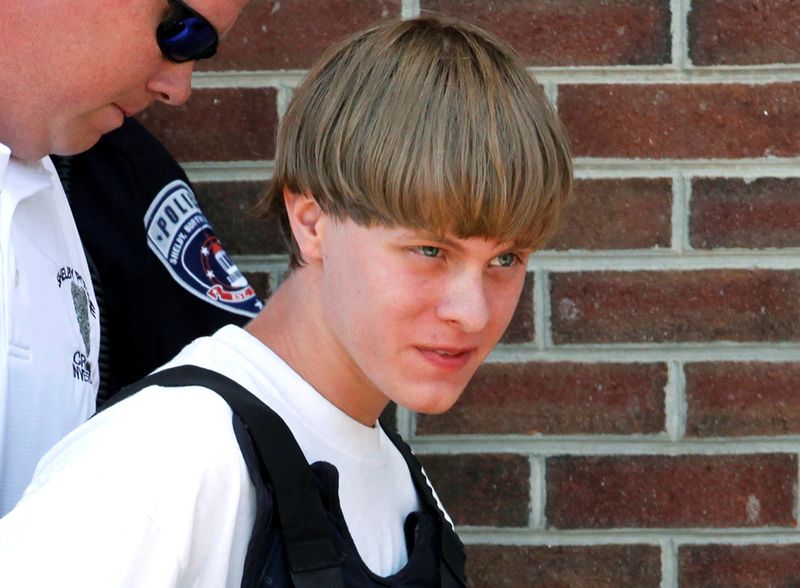By Harriet McLeod
CHARLESTON, S.C. (Reuters) - The avowed white supremacist accused of killing nine black people at an historic South Carolina church told a federal judge on Sunday that he no longer wished to represent himself during the "guilt" phase of his murder trial in Charleston.
Dylann Roof, 22, sent a handwritten note to U.S. District Judge Richard Gergel saying that he now wished to bring back his defence team, at least temporarily, for a trial that began last week with jury selection.
"Can you let me have them back for the guilt phase, and then let me represent myself for the sentencing phase of the trial?" Roof wrote in blue ink on lined notebook paper. "If you would allow that, then that is what I would like to do."
Roof has not said publicly why he wants to defend himself against charges stemming from the shooting attack, carried out during a Bible study session at Emanuel African Methodist Episcopal Church in June 2015.
The shootings of the nine unsuspecting churchgoers, gunned down after inviting a stranger to join their prayer meeting, opened a raw nerve among Americans of all races and kindled a national dialogue about race relations in the country.
Roof's lawyers previously said he wanted to plead guilty if federal prosecutors agreed to a sentence of life in prison without parole. They refused. Roof faces the death penalty in a state murder trial set to begin early next year.
David Bruck, Roof's former lead attorney, declined comment on Roof's request on Sunday. Assistant U.S. Attorney Jay Richardson could not immediately be reached for comment.
Roof's trial has been delayed almost a month because Bruck requested Roof undergo a competency hearing on whether he understood the charges against him and could help in his own defence.
Gergel found Roof competent to stand trial earlier this month but when jury selection resumed last week, Roof asked to represent himself. The judge granted the request but stipulated that Bruck could offer advice only when the defendant requested it.
Roof began helping with jury selection last week, occasionally raising objections to a juror being qualified or struck. But when the defendant, who has only a ninth grade education, sat making no objections or motions, Bruck tried to intervene and the judge silenced him.
A pool of 70 qualified jurors was completed on Friday. Jurors were questioned and qualified by the judge based mostly on their opinion of the death penalty.
Prosecutors and defence attorneys will begin whittling down the pool of jurors on Wednesday to seat 12 jurors and six alternates.
A pre-trial hearing is scheduled for Monday morning at U.S. District Court in Charleston.
